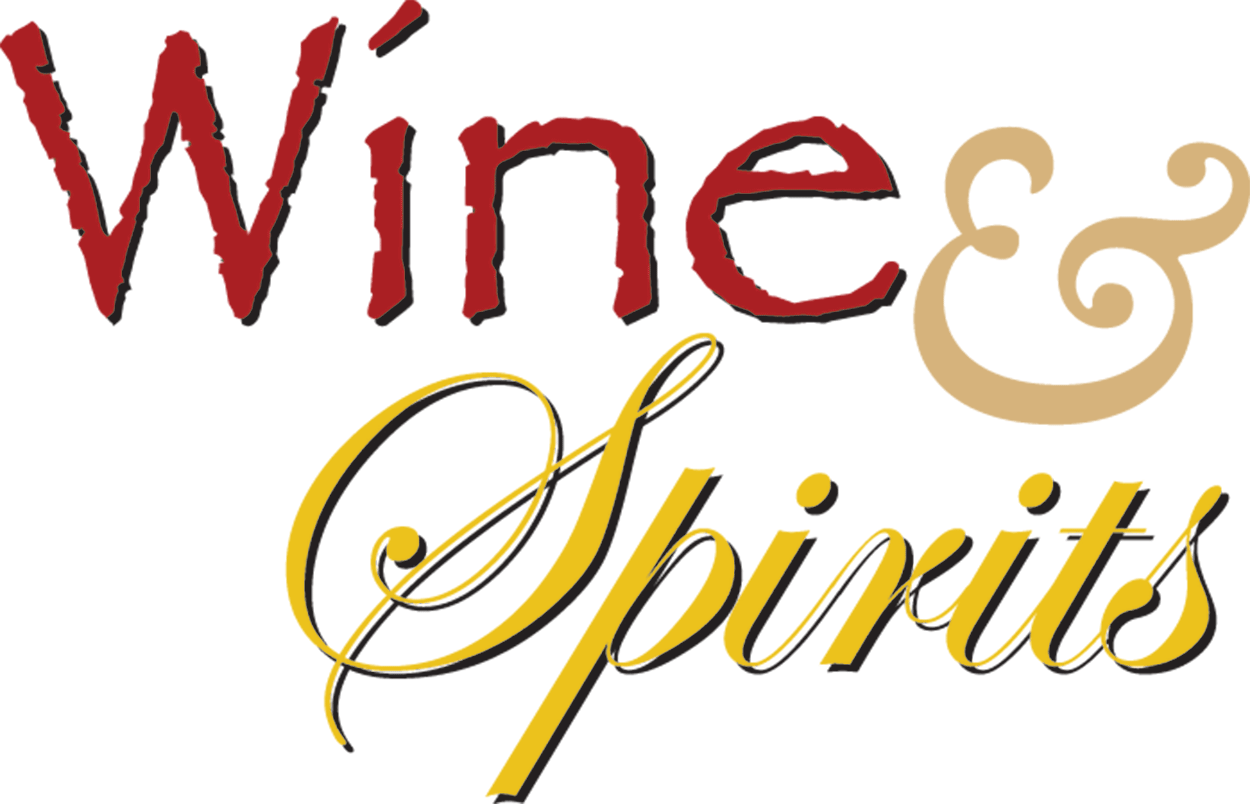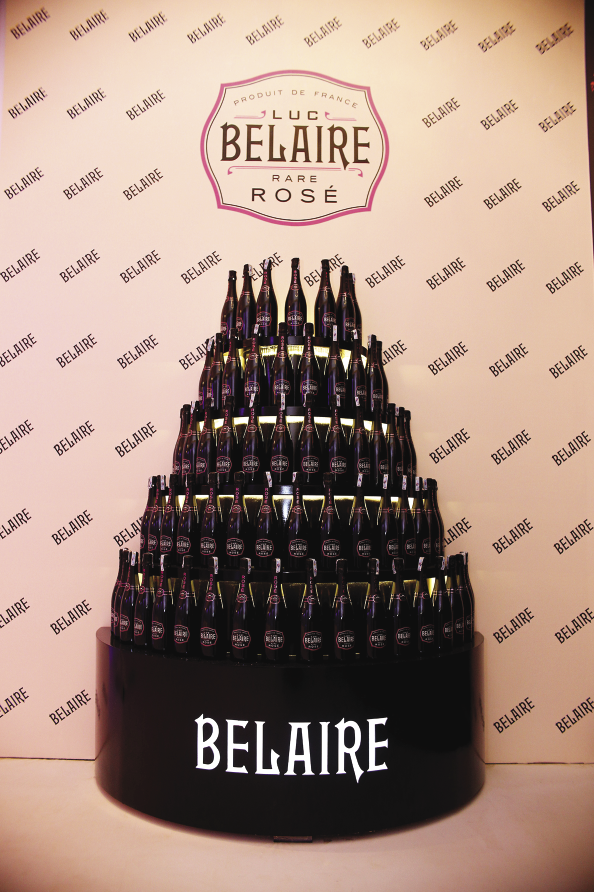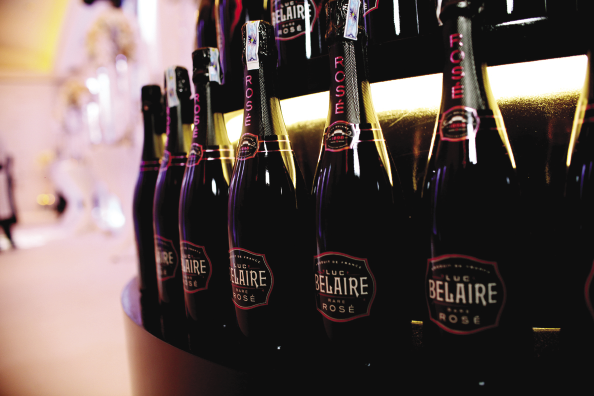- Home
- Media Kit
- Current Issue
- Past Issues
- Ad Specs-Submission
- Ad Print Settings
- Reprints (PDF)
- Photo Specifications (PDF)
- Contact Us

![]()
ONLINE

Creating Brands
Editors’ Note
At Sovereign Brands, Brett Berish has created numerous successful brands, including Armand de Brignac Champagne, rated the world’s top Champagne in 2010, and Luc Belaire, a collection of French sparkling wines that has quickly become globally recognized for its bold taste, striking packaging, and value. Berish and Sovereign Brands also developed D’USSÉ, a popular Cognac brand currently operated by Bacardi Ltd. The international partnerships Berish has created with some of the world’s finest wine and spirits producers along with a proven ability to create powerful, resonant branding has enabled Sovereign Brands to develop an extraordinary and unique portfolio of premium beverages.
Company Brief
Sovereign Brands (sovereignrands.com), a family company run by third-generation pioneers in fine wines and spirits, has a portfolio including Luc Belaire, Cloud Chaser Rosé, and Skeleton Vineyards.

Luc Belaire Rosé, a Sovereign Brands
product launched two years ago
How has Sovereign Brands evolved to where it is today?
We’re a family-owned company – my brother and I started it in the late ’90s and our father serves as our Chairman.
We have history in the wine and spirits business – our father Barry Berish was the Chairman at Jim Beam for more than 25 years and my brother Brian managed a good chunk of the marketing budget for many of their brands.
I did not actually work in the industry but all we talked about growing up was my father’s business so it was a natural fit for me.
Our goal then is the same as it is today: We want to create brands that stand out in the industry and are better than anything in the marketplace.

Are you focused on specific categories or products? What are the key priorities?
In our industry, the big guys keep getting bigger so the consumer is constantly seeing major million-case brands out there.
So many wonderful small families like ours are producing fantastic products, but you rarely hear about them. We seek out the best of the best producers to work with. Our focus is to develop a product with our partners that we think can capture an audience in search for something special, unique, or different. We’re committed to quality first and foremost; our products have to be better than anything else in the market.
Can you compete as a smaller, more focused company against the marketing engines and the dollars of the large players?
We can – it’s just a question of how we go about it. We don’t believe that we have to do an enormous number of cases from day one, which is what big companies focus on. Brands take time to build and we don’t want to force anyone to like ours. We launched Luc Belaire two years ago and it’s already in 55 countries – that has been enormously successful for us. It wasn’t that we were seeking out these countries for distribution – consumers were demanding our product in their markets.
For me, it’s about how you view success and less about numbers.
Are there certain categories that offer greater opportunity or are you open to any area where you find that right play?
You need all elements of a brand to be on point, including what’s inside the bottle, the packaging, the brand name, and the story we’re going to tell – each are equally important for success.
You can have a great looking package, but if consumers do not enjoy what’s inside, they’re never going to come back to it. You can also have a great liquid but if no one ever sees it, they’re never going to try it, especially if you don’t have a huge marketing budget.
At Sovereign Brands, we’re not inventing new categories – we just think there is tremendous opportunity for creating superior products and are committed to partnering with first-class producers and drawing inspiration from the world’s finest regions to develop irresistible beverages for many years to come.
Is there a point during development when you know if something will be successful or not?
We’re “gut” people. We don’t hire consulting firms, we don’t have marketing agencies, and we don’t use focus groups. We’re making decisions based on what we think the market will like.
We’re open to modifying, changing, or expanding our portfolio as the market demands. Luc Belaire Rosé has been hugely successful across the globe and, as a result, we released a collection of six sizes from 375ML to the show-stopping 15L as well as a new variety, Brut Gold, a traditional Blanc de Blancs made in Burgundy. In addition, to capitalize on our popularity in nightclubs, we created a luminescent label called Luc Belaire Fantôme (French for “phantom”), ideal for celebratory moments after dark.
Is it about innovating by finding new products or about enhancing the products you already have?
I’m a big believer in looking ahead of the curve. Whether it’s creating a new product that will enhance the Sovereign Brands portfolio and satisfy a void within the category or creating innovative ways to make our existing products stand out, my personal goal has always been to position Sovereign Brands as an industry leader and make our brands better than other category competitors.
What is the key to the success of Sovereign Brands?
Our mistakes have led to our biggest successes. We make it a point to learn something from each opportunity we encounter.
As a family-operated business, segregating responsibility is crucial so we’re not all doing the same thing. My brother, Brian, runs the U.S., which is a huge part of the business. We have our own sales force and network in the states. I oversee the entire business but I am specifically responsible for our international affairs. The beauty of working with family is that I know I can trust that my counterpart is going to work as hard if not harder than I will.
As for the rest of the team, we treat the 50 people who make up Sovereign Brands like they’re family. We try to create an atmosphere that embodies innovation, quick decision-making, and self-motivation.
Is it possible to spend time with your brother or father and not talk about the business?
It is, but it’s not negative if we do. We like what we do; it gives us pleasure. I’ve learned that the hardest thing about business is finding that thing you love. Business is something you spend most of your time doing, so if you can combine your passion with the craft, there’s nothing wrong with doing or speaking more about it.•